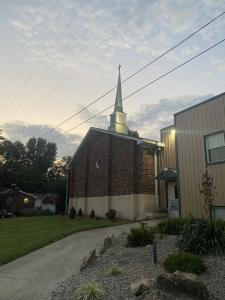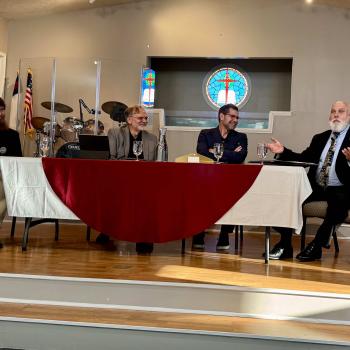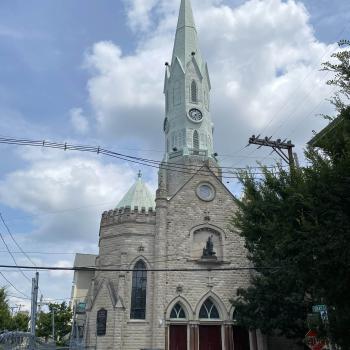Is it possible for someone to facilitate ecumenical dialogue without involving the participation of more than one Christian tradition? Such a thought certainly seems contrary to the pursuits of Christian unity, doesn’t it? I think in one sense it is, but taken in another, perhaps this variety of dialogue could actually contribute to the aims of the greater ecumenical project.

Unilateral Dialogue
In December of 2022, I ran with this concept, and organized a panel discussion event called, “Baptists in Dialogue.” In the words that follow, I will briefly describe this endeavor, lay out why it was important, and divulge the reason for which it successfully contributed to the goal of a Church visibly united—at least on a local level.
To put it succinctly, Baptists in Dialogue (BID) was a live panel discussion that incorporated elements of worship and included different orthodox Baptists, all of whom hold to the authority of Scripture and adhere to the fundamental tenets of the historic Christian faith. In this way, the event shared much with its interdenominational parent project, “The Church in Dialogue (TCID).” The only substantial difference that separated them was the tradition pool from which its speakers were drawn.
TCID (see more info here) is an ongoing interdenominational event series that includes nearly every orthodox Christian tradition, while Baptists in Dialogue incorporated only Baptists. This solitary distinction didn’t change much, but it did modify the goals of The Church in Dialogue to some extent. Let’s take a brief look at the aspirations of this Baptists-only ecumenical project.
The Aims of “Baptists in Dialogue”
Like TCID, Baptists in Dialogue (BID) sought to teach. It was a project that pursued classification as a theology course of sorts and included studied speakers from different churches and seminaries who prepared presentations in accordance with their theological convictions. One of the overarching goals of the event (and others within TCID series) was for attendants to leave with at least some new knowledge concerning the topics that were discussed; through either the panel discussion, the layout of the questions, or the concluding time of fellowship, we wanted the event to contribute to the theological education of all those who were present.
Indeed, BID was an opportunity for Christians to discover more about certain aspects of Christian belief that are heard less often during standard church services—but we didn’t intend for the learning to stop there. BID also aimed to be a vehicle by which believers could attain a greater awareness of, and appreciation for, the convictions of those Baptists who are near to them.
What this particular gathering showed was that even within the same congregation you might find Christians who hold to a variety of beliefs concerning certain theological topics, and that is assuredly permissible. With respect to some subjects—such as eschatology—you can be a legitimate Baptist, and have an opinion that differs from your brothers and sisters who are also Baptists.
Caveats aside, as long as one clings wholly to Christian orthodoxy, while additionally working within the bounds of his/her church’s creedal formulas, obtaining an opinion which is divergent from the convictions of one’s fellow congregants is absolutely no reason to severe communion. One of the reasons BID existed was to help people learn more about their differences despite their similarities with the major hope of deepening their relationships with others. This event, like TCID, was an exercise in Christian unity.
Pursuing Greater Unity
Baptists in Dialogue also sought to make a contribution to the larger project of conservative Christian ecumenism. While it certainly wasn’t a typical ecumenical endeavor, it nevertheless made an effort toward the goals of ecumenism; BID attempted to bring separated brethren together by means of what it revealed. Unlike TCID, Baptists in Dialogue did not include panelists from a host of different denominations. It did, however, include speakers from the same tradition who hold diverse convictions.
What resulted was an immense opportunity for reflecting on what separates us Bible-believing brethren. If several panelists can uphold opposing beliefs regarding some topics, and still potentially be members of the same church body, how might this inform our relationship with other orthodox Christian denominations? Now I’m not suggesting that we immediately dissolve the boundaries that separate us from Lutherans just because Baptists can have conflicting eschatological views.
Instead, I am simply recommending to the reader that the event that I’m describing was an opportunity for attendants to think critically about what divides us Christians today. Clearly not all subjects merit separation; perhaps there are more theological topics that could be reevaluated so as to heal the visible Church of some of its severed communions.













